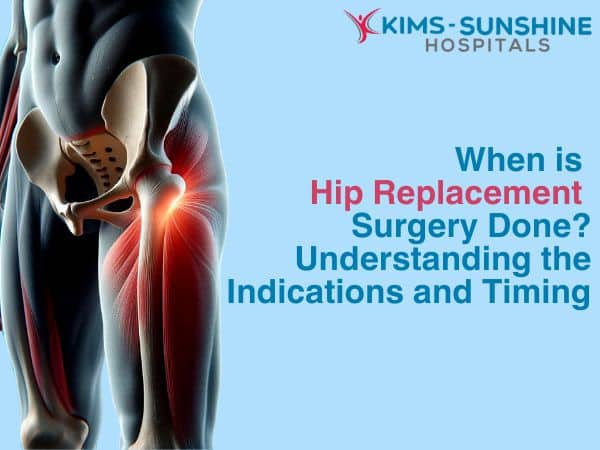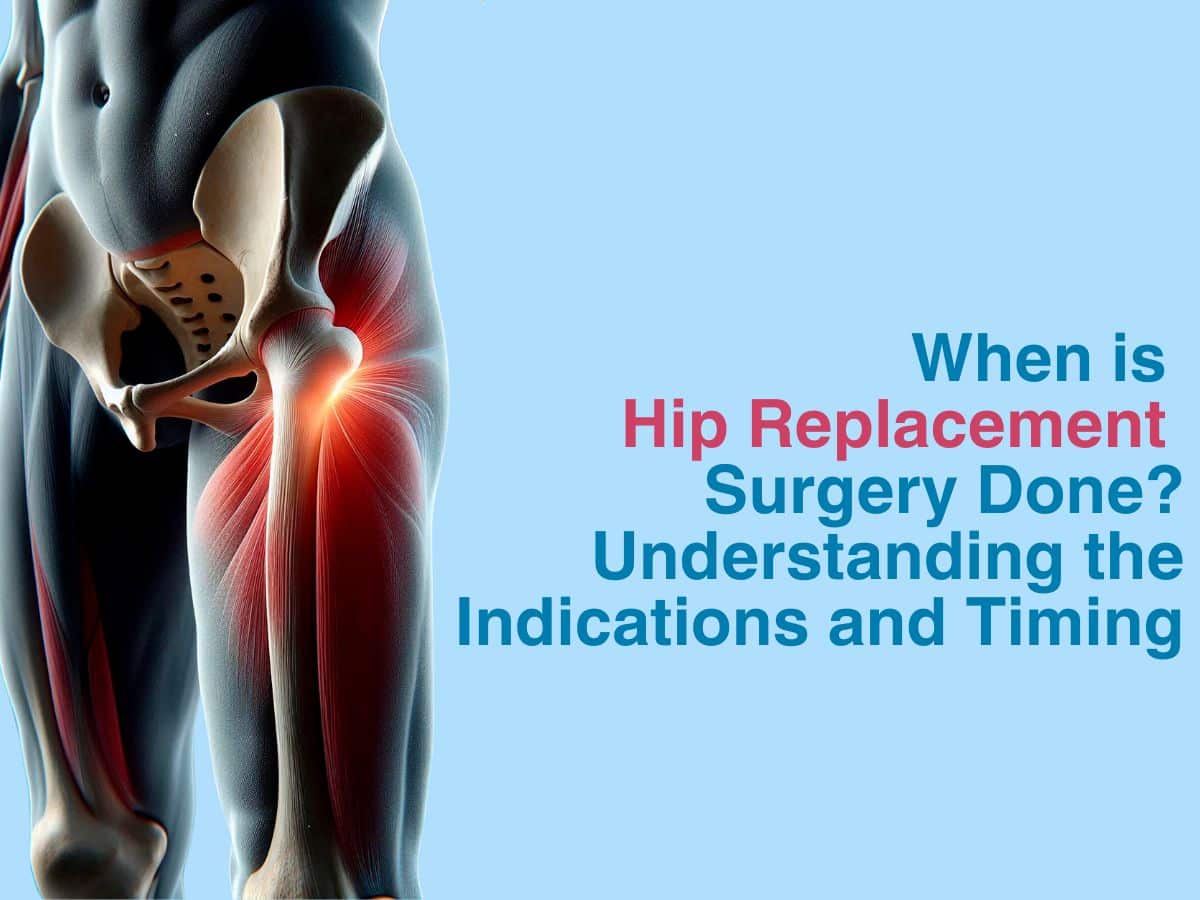
When is Hip Replacement Surgery Done? Understanding the Indications and Timing

Hip replacement surgery is a transformative procedure that offers relief and a new lease on life for those grappling with chronic hip pain and impaired mobility. For many, the decision to undergo this surgery marks the end of a long struggle with discomfort and the beginning of a more active, pain-free life. However, determining the right time to opt for this major surgery can be challenging. Is it the right choice for you, or are there other alternatives that might work?
In this article, we’ll delve into the key indicators that suggest hip replacement surgery might be necessary. Understanding these signs can empower you to make informed decisions about your health, ensuring that you choose the best path forward to regain your quality of life. Whether you’re in the early stages of hip discomfort or facing advanced hip degeneration, knowing when to consider surgery is crucial. Let’s explore the primary reasons for hip replacement and when it might be time to take that significant step.
Indications for Hip Replacement Surgery
1. Severe Osteoarthritis
The most common reason for hip replacement surgery is severe osteoarthritis. This condition occurs when the cartilage in the hip joint wears away, leading to bone-on-bone friction, pain, and reduced mobility.
2. Chronic Hip Pain
Persistent hip pain that doesn’t respond to conservative treatments like medication, physical therapy, or lifestyle modifications may indicate the need for hip replacement surgery.
3. Hip Joint Damage
Other conditions that can damage the hip joint and necessitate replacement include:
- Rheumatoid arthritis
- Avascular necrosis
- Hip fractures
- Childhood hip diseases
When to Consider Hip Replacement Surgery
Consider discussing hip replacement with your doctor if you experience:
- Pain that persists despite medication
- Hip pain that worsens with walking or bending
- Hip pain that interferes with sleep
- Difficulty with daily activities like putting on socks or getting in and out of a car
Eligibility for Hip Replacement Surgery
Not everyone with hip pain is a candidate for hip replacement surgery. Factors that determine eligibility include:
- Age (although there’s no specific age limit)
- Overall health and ability to undergo major surgery
- Bone density and quality
- Severity of hip joint damage
Conclusion
Deciding to undergo hip replacement surgery is a significant choice, but for many, it can be the key to reclaiming a pain-free, active lifestyle. By understanding the signs and symptoms that indicate the need for this procedure, you can approach your decision with confidence and clarity. Whether it’s due to severe osteoarthritis, chronic pain, or other hip joint conditions, knowing when to consider surgery is crucial in ensuring the best outcome for your health and well-being.
If you find that conservative treatments are no longer effective, or if your hip pain is severely impacting your daily life, it might be time to discuss hip replacement surgery with your healthcare provider. With advancements in surgical techniques and recovery processes, this procedure can offer a new beginning, helping you return to the activities you love.
Frequently Asked Questions
What is hip replacement surgery and how does it work?
Hip replacement surgery involves removing the damaged parts of the hip joint and replacing them with artificial components made of metal, ceramic, or plastic. This creates a new, smooth-functioning joint that can reduce pain and improve mobility.
What are the common signs that you might need hip replacement surgery?
Common signs include:
- Persistent pain despite conservative treatments
- Difficulty walking or climbing stairs
- Pain that interferes with sleep and daily activities
- Stiffness in the hip that limits movement
Who is a good candidate for hip replacement surgery?
Good candidates are typically those who:
- Have severe hip pain and disability
- Have tried conservative treatments without success
- Are in generally good health
- Are motivated to undergo rehabilitation after surgery
What conditions typically lead to the need for hip replacement surgery?
Common conditions include:
- Osteoarthritis
- Rheumatoid arthritis
- Post-traumatic arthritis
- Avascular necrosis
- Hip fractures
- Childhood hip diseases
What are the benefits of hip replacement surgery?
Benefits often include:
- Significant pain relief
- Improved mobility and range of motion
- Better quality of life
- Increased ability to perform daily activities
- Potential return to low-impact sports and activities
Remember, the decision to undergo hip replacement surgery should always be made in consultation with an orthopedic specialist. They can evaluate your specific situation and help determine if hip replacement surgery is the right choice for you.

Dr. Adarsh Annapareddy
MBBS, MS (Ortho), Fellowship in Arthroplasty, P.G.D. (Hospital Management)
Consultant Orthopaedic & Joint Replacement Surgeon (Hip & Knee)






